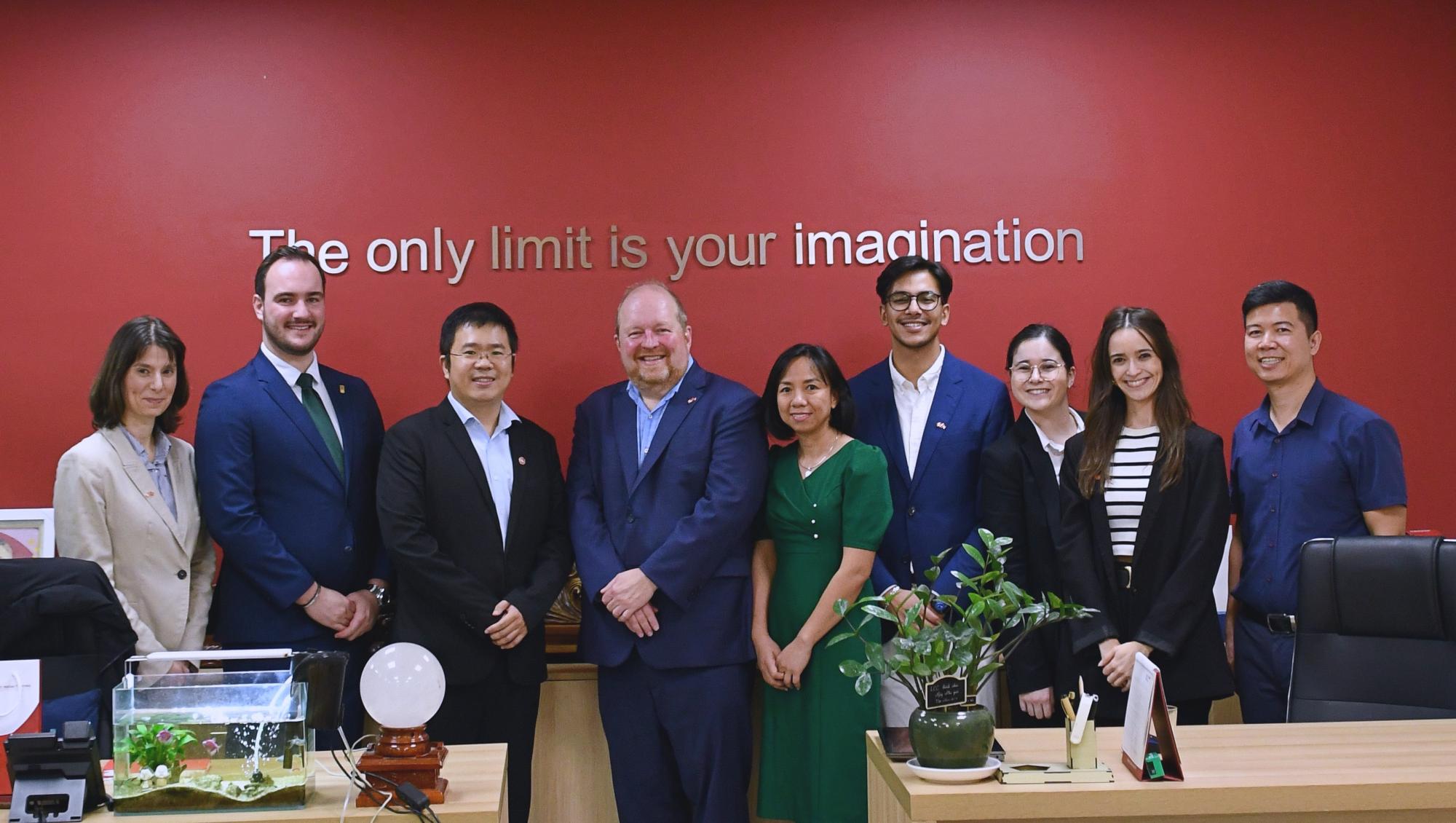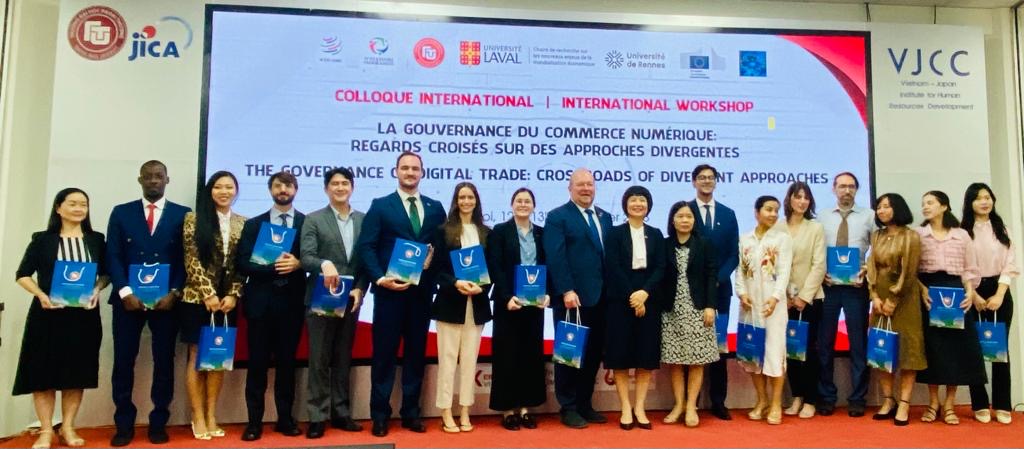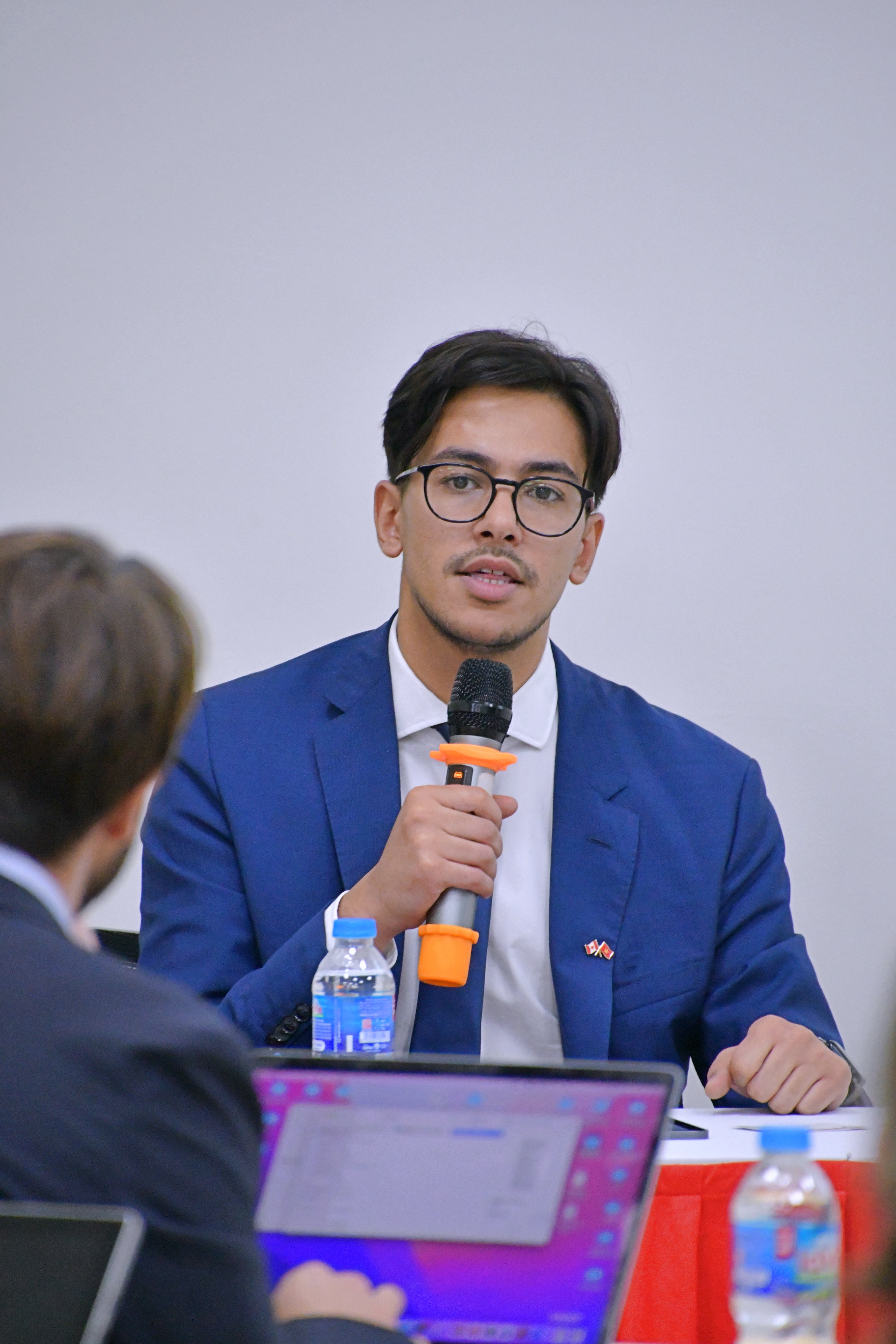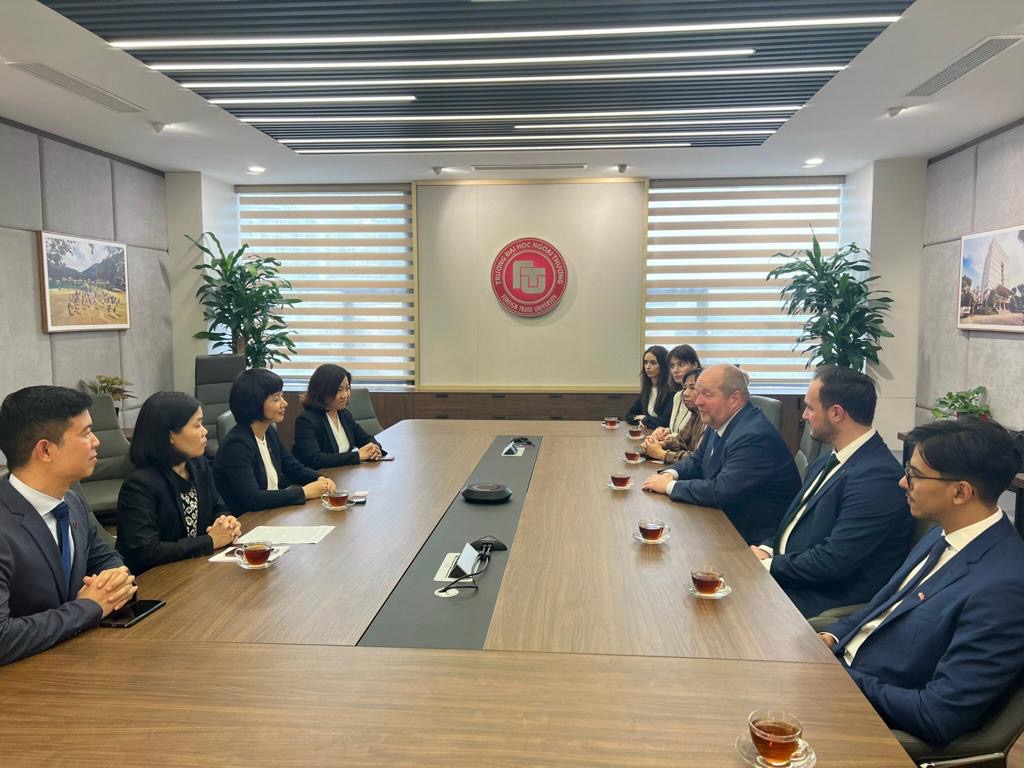From Academia to Adventure: Unpacking the Hanoi Conference on "The Governance of Digital Trade: crossroads of different approaches."
Samir El Khanza's journey through Digital Governance and Cultural Discovery

1. The Conference
This winter, the vibrant city of Hanoi, Vietnam, became a melting pot of ideas and innovation as it hosted the International Workshop on "The Governance of Digital Trade: crossroads of different approaches." Hosted by the Foreign Trade University of Hanoi (Vietnam) and organized by the collaboration between the WTO Chair Programme, the Research Chair Jean Monnet DataGouv of Rennes University (France), and the Research Chair on New Challenges of Economic Globalization of Laval University (Canada), the conference delved into the complexities of digital trade regulation.

Held in the middle of December 2023, the two-day event saw an impressive gathering of thirty speakers from across the world, hundreds of participants in-person and, even more online. The focus was on the multifaceted approaches to digital trade regulation, exploring their coherence and capacity to coexist within the international order. The conference successfully brought to light the pressing need for international standards and norms to govern digital cross-border trade amidst the diversity of regional and national regulations.
2. My Research Contribution
 In the middle of this rich exchange of ideas, I presented my research, “The global governance of digital trade: just another Brussels effect?”. This study explores the European Union's (EU) proactive stance on digital trade regulation, both within its borders and on the international stage. By examining the EU's regulatory framework, including relevant legislations like the GDPR, DSA, and DMA, and its digital partnerships with countries like Japan, Singapore, and the Republic of Korea, my research sheds light on the EU's potential to shape the global digital trade governance. The study highlights the EU's dual strategy to influence international digital trade law. While internally it implements regulations, such as the GDPR, DSA, and DMA, to secure a digital environment that protects users and promotes fair competition; externally it engages in bilateral agreements and WTO negotiations to influence the global digital trade governance. The research systematically analyses the legal basis for the EU's digital trade legislation, recent policy advancements, and the implications of these policies for the EU's digital landscape. It then assesses how the EU's regulatory framework is integrated into its digital partnerships. These efforts demonstrate the EU's influence on digital trade governance beyond its borders. However, it also acknowledges its limitations. One of the primary constraints is the reliance on non-binding agreements in many of its digital partnerships. Being based on soft-law, these partnerships facilitate cooperation and dialogue, but they lack the enforceability of hard-law agreements. However, it is important to note that despite these challenges, the EU's digital partnerships outline the EU’s commitment to fostering a secure, fair, and open digital trade environment.
In the middle of this rich exchange of ideas, I presented my research, “The global governance of digital trade: just another Brussels effect?”. This study explores the European Union's (EU) proactive stance on digital trade regulation, both within its borders and on the international stage. By examining the EU's regulatory framework, including relevant legislations like the GDPR, DSA, and DMA, and its digital partnerships with countries like Japan, Singapore, and the Republic of Korea, my research sheds light on the EU's potential to shape the global digital trade governance. The study highlights the EU's dual strategy to influence international digital trade law. While internally it implements regulations, such as the GDPR, DSA, and DMA, to secure a digital environment that protects users and promotes fair competition; externally it engages in bilateral agreements and WTO negotiations to influence the global digital trade governance. The research systematically analyses the legal basis for the EU's digital trade legislation, recent policy advancements, and the implications of these policies for the EU's digital landscape. It then assesses how the EU's regulatory framework is integrated into its digital partnerships. These efforts demonstrate the EU's influence on digital trade governance beyond its borders. However, it also acknowledges its limitations. One of the primary constraints is the reliance on non-binding agreements in many of its digital partnerships. Being based on soft-law, these partnerships facilitate cooperation and dialogue, but they lack the enforceability of hard-law agreements. However, it is important to note that despite these challenges, the EU's digital partnerships outline the EU’s commitment to fostering a secure, fair, and open digital trade environment.

Overall, these collaborations offer a platform for regulatory dialogue, convergence, and the shaping of common positions on digital trade in the international arena. By promoting cooperation in areas such as cybersecurity, artificial intelligence, and data flows, the EU aims to set global standards that reflect its own internal regulatory developments. Conducting this research was important for me because it shares shares thematic parallels with my PhD project. Indeed, both studies highlight the European Union's strategic use of its internal regulatory frameworks to assert influence on the global stage, whether through trade agreements or digital trade policies. The paper presented and my individual PhD project both explore the EU's dual approach of aligning its internal policies with its external actions to set international standards, while also acknowledging the challenges and limitations inherent in these efforts.
3. The Heart of Hanoi
To sum it up, beyond the academic rigor, Hanoi offered an unforgettable adventure. The warmth and hospitality of the Vietnamese people, the incredible local cuisine, and the engaging discussions with scholars from around the world made the trip truly remarkable. Furthermore, Hanoi, with its deep culture and lively streets, was the perfect place for an event that was as much about building connections and understanding as it was about sharing knowledge and culture. The conference did more than just fuel academic dialogue, it was a gateway to discovering the heart and soul of Vietnam, showcasing the unparalleled kindness of its people. It was a reminder of the power of collaboration and the potential of “Academia” to bring us closer, despite our geographical and cultural differences. In conclusion, the Hanoi conference was a testament to the dynamic character of this country. It was an enriching experience that combined intellectual stimulation with the joy of exploration, leaving me with memories and and a suitcase full of insights (and of course some gifts) that I will undoubtedly never forget.
